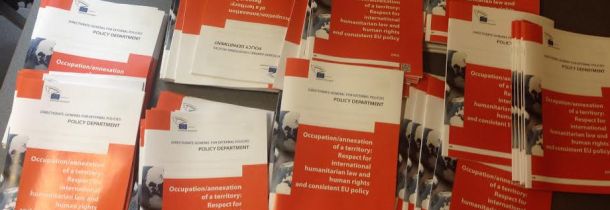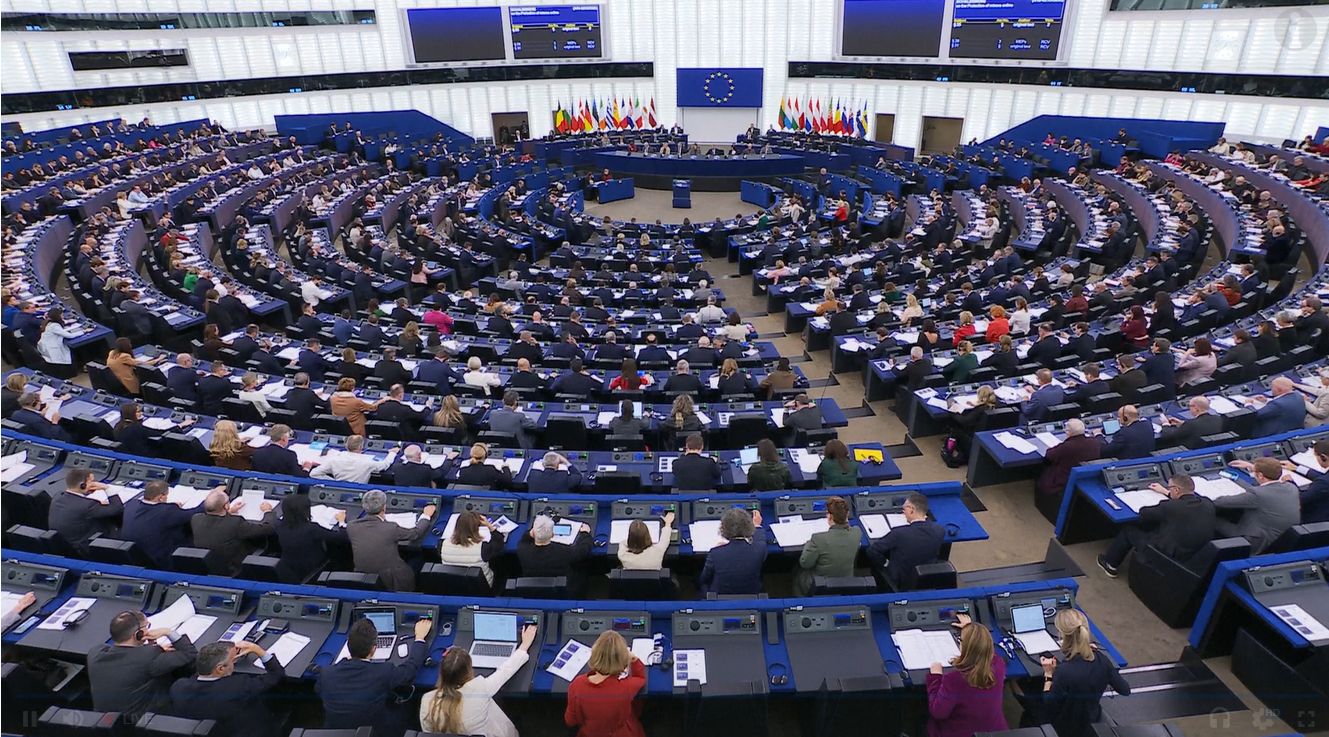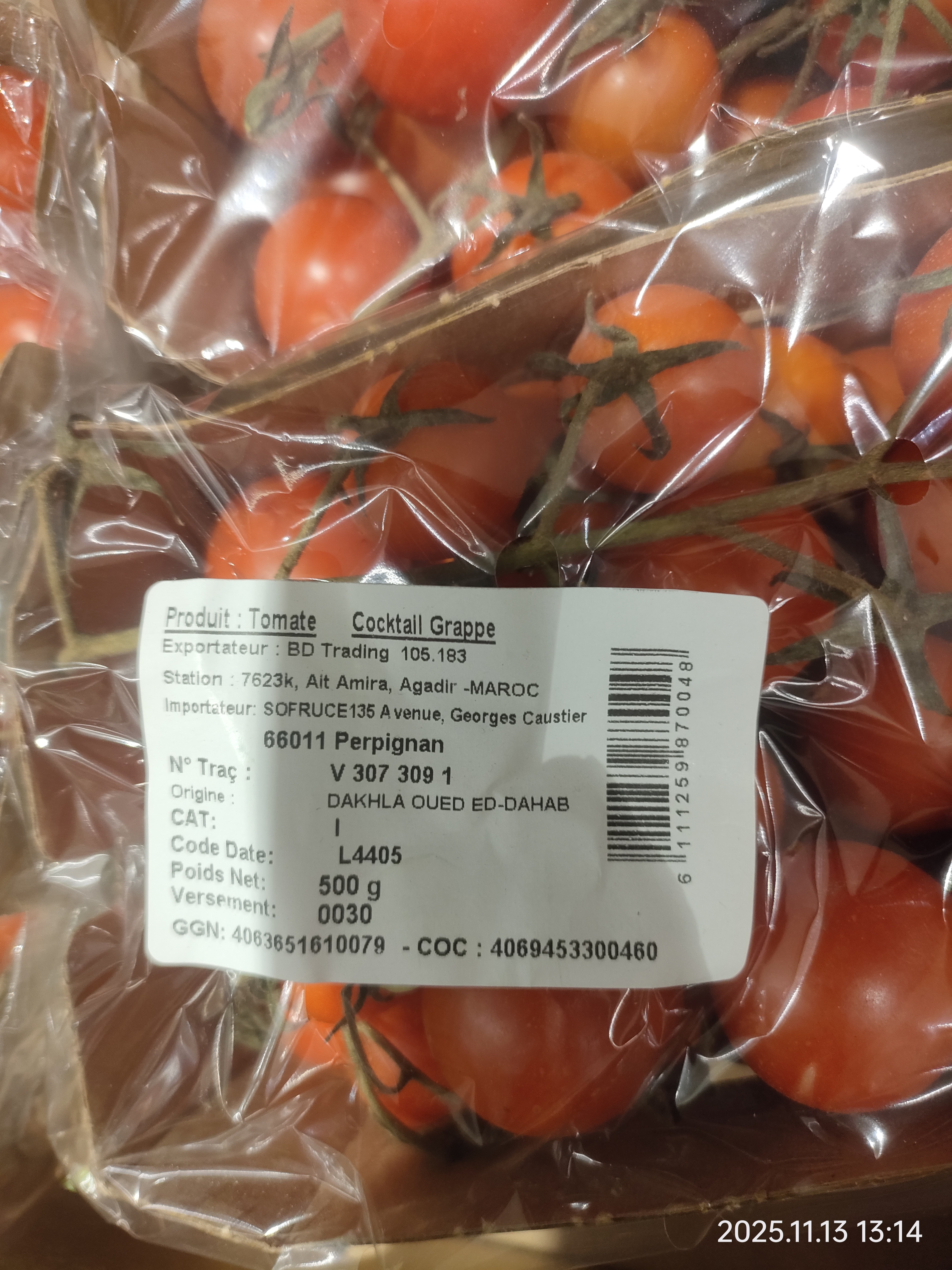
The EU Commission has authored a new report detailing how Moroccan settlers benefit from a trade agreement that has been found illegal by the EU Court of Justice multiple times.
Western Sahara Resource Watch (WSRW) has got access to a highly controversial document, dated 13 January 2023, written by the European Commission. The document is a so-called Staff Working Document (SWD), and its content addresses what the Commission refers to as “the advantages for the people of Western Sahara” of implementing the EU-Morocco trade agreement in Africa's last colony.
So far, six consecutive rulings from the EU Court of Justice have found the application of EU-Morocco bilateral agreements - including the trade agreement that is subject of the SWD - to be illegal. The EU Commission has seemingly not bothered to take into account anything from the ten last years of legal developments.
The report is not yet published on the EU’s webpages. Download the report here.
The introduction of the report explains that the document is a response to a request from the European Parliament “which wishes to be kept regularly informed about the effects of the application of tariff preferences to products from Western Sahara and potential benefits for affected populations”.
What the report omits, is that this request from the Parliament is rooted in another Staff Working Document from 2018, that was flawed on many levels. One such error was the EU Commission's argument that the EU Court ruling of December 2016 - outlawing the application of the EU-Morocco trade agreement Western Sahara for not having been consented to by the people of the territory - allowed for continuing the agreement if it were to the benefit of the population living there.

It should be noted that this approach had already been found to be irrelevant by the EU Court of Justice in December 2016 and again in the most recent ruling of the General Court in 2021.
The new SWD of 13 January 2023 does not refer to the now six consecutive rulings by the EU Court of Justice, all banning the application of EU-Morocco bilateral agreements to Western Sahara. Instead, a single sentence in the 28-page document says that it “remains relevant and valid to present this periodic report on the impact of the agreement” while the agreement that “was annulled by the judgment of the General Court” is under appeal. The Commission offers no explanations on the arguments that have consistently been presented by the EU Court of Justice: that since Western Sahara is a territory that is "separate and distinct" from Morocco, and as the latter has no sovereignty or administering mandate over the territory, EU-Morocco bilateral agreements cannot lawfully affect Western Sahara unless with the consent of the people of the territory - expressed through the UN recognised representative of the people, the Polisario Front. As that consent has never been given, the agreements cannot be applied to Western Sahara.
In fact, the word “consent” is not mentioned even once in the entire report.
The new Staff Working Document - "2022 Report on the effect and benefits for the people of Western Sahara in relation to extending tariff preferences to products originating in Western Sahara" - seems to systematically ignore the rulings and arguments of the EU's own highest court. Rather, it focuses on an approach that has been rejected by the Court twice - that of benefits - to an agreement that in itself is ruled to be illegal in Western Sahara.
While the cover of the report contains the term “people”, that concept is not to be found elsewhere in the entire report.
Throughout, the Commission consistently uses the term “population”, which is a different legal concept altogether: Western Sahara's current population consists primarily of Moroccan settlers, while the people of Western Sahara are a minority in their homeland as many Saharawis live in refugee camps in Algeria or in the wider diaspora. The Saharawis that have fled Western Sahara after Morocco's invasion and annexation, are thus not at all taken into consideration for this report.
The document contains data on production in and exports from Western Sahara for 2021 (occasionally also for part of 2022) and has a chapter on “fundamental rights”. The document explains that the information in the report was mainly obtained through exchanges with the government of Western Sahara's neighbouring country, Morocco.
“In a context where Morocco's lack of legal status over Western Sahara has been repeated over and over again by the EU Court of Justice, where Morocco will refuse to cooperate with the EU on issues as migration or counter-terror when it perceives any criticism on its presence in Western Sahara, where a police investigation is revealing that Morocco has used bribes to influence EU decision-making in favour of its untenable occupation of Western Sahara - it is very hard to understand why the EU Commission would accept Morocco as a source for anything relating to Western Sahara”, says Sara Eyckmans of WSRW.
The SWD however states that the EU Commission and EU External Action Service have contacted “a wide range of entities with different degrees of interest and representativeness in the territory”, inviting them “to provide relevant information on the impact of the agreement on the population and on the use of natural resources”.
The EU Court ruling of 2021 rejected the approach of consulting stakeholders. Instead, the Court argued, there is a need to obtain consent from the representative of the people of Western Sahara to apply the trade agreement to the territory. That representative, according to the Court, is the party that is recognised by the UN as such: the Polisario Front. Apart from the Polisario Front, which declined to take part in the consultation, none of the groups listed in the SWD represent the people of Western Sahara - including WSRW.
Find WSRW's reasons for refusing to take part in the consultation here.
The main conclusion of the report is that applying the EU-Morocco trade agreement to Western Sahara has positive effects "in terms of productions and export, and creates employment and investments". Exports to the EU continue to display an upward trend, the document reads, and as such, the agreement renders production in Western Sahara to be competitive and allows for the development of the two sectors that are mainly affected by it: agriculture and fisheries.
The report primarily covers the agriculture and fish sector in Western Sahara. It is worth recalling that the EU-Morocco trade deal covers both agricultural products and fish products, such as frozen fish, canned fish, fish oil and meal, etc. It does not govern the EU's fishing activities in Morocco that are the subject of the EU-Morocco Fisheries Agreement.
Some of the main elements set forth in the Staff Working Document are summarized below.
With regard to agriculture:
- The EU only imports from the administrative region labelled by Morocco as “Dakhla - Oued Eddahab”. For 2021, 85.3% of that region's agricultural production was exported to the EU: 65,700 tonnes out of a total production of 77,000 tonnes ended up in the Union. The value of these exports was €77.5 million: €66.3 million for tomatoes and €11.2 million for melons.
- Unapplied customs duties for 2021 equal €8.7 million.
- While the report could not give full figures for 2022, the export trend for the first three quarters of the year are on par with 2021.
- A new agricultural product was imported into the EU in 2022: around 44 tons of peppers, with a value of €43,614 were imported during the first three quarters of 2022.
- None of the agricultural products are imported directly from the occupied territory. They are packaged in Agadir, in Morocco proper, and go through phytosanitary checks there before being shipped to the EU.
- The SWD states that the water reserves in Western Sahara are insufficient compared to the needs in the territory. The agricultural activity draws heavily from the underground reserves, which also serve as the drinking water supply. The document reports on the planned wind-powered desalination plant in Dakhla (a project carried out by Engie), which will service another 5,000 hectares of irrigated farming land in the occupied territory, as a mitigating element.
With regard to fishery products:
- In 2021, the EU imported 147,000 tonnes of processed fish products, worth €604 million. That is a 6% increase in volume from 2020, while the value has gone up 50.6%.
- For 2020 and 2021 combined, the EU imported fish products worth over €1 billion from occupied Western Sahara through the trade deal with Morocco.
- The main imported products are sardines, squid, cuttlefish and frozen shellfish.
In addition, the report contains a short description about other economic sectors in Western Sahara. The Moroccan renewable energy projects in the territory are highlighted in a box entitled “Western Sahara's renewable mini-grid”. These infrastructure projects on occupied land are lauded as giving industries in Western Sahara a competitive advantage. It is worth noting that all currently operational wind farms in occupied Western Sahara are in the portfolio of Nareva, the energy company owned by the king of Morocco. The report gives particular attention of the planned wind farm project in Dakhla, without adding that this farm is co-owned by Morocco's prime minister Aziz Akhannouch.
The phosphate sector is briefly touched upon, revealing that there are no exports of Western Saharan phosphates to the EU because there is not yet a production of processed phosphate products in the territory and that there is no interest in the EU for raw phosphates from the territory.
The document does state that raw phosphates from Western Sahara are likely to be used in Morocco to manufacture phosphate derivatives that are then exported to the EU under preferences. This is incorrect. There are no transports of phosphate from Western Sahara to Morocco, neither by ship or overland. There have never been. The illegal phosphate exports from the territory are covered in WSRW's annual reports P for Plunder. In the report series, WSRW has documented most likely every vessel that has exported rock from the territory for the last 12 years.

That the Moroccan government has no legal ground to undertake any economic activities in Western Sahara, is not mentioned anywhere in the report, which instead normalises these controversial investments.
The report contains a chapter called “fundamental rights” that purports to give a short brief on the current human rights situation in Morocco and Western Sahara, and on the UN peace process. While recognising that “objective international sources on the human rights situation remain rare”, the Commission goes on to say that since Morocco considers Western Sahara as an integral part of its territory, “therefore, and without prejudice to the EU position on Western Sahara, the situation of human rights in Western Sahara has usually been followed by the EU in accordance with the institutional framework governing bilateral relations between the EU and Morocco". Info has in particular been obtained through a sub-committee dedicated to ”human rights, democratization and governance" set-up under the EU-Morocco Association Agreement. The Commission writes that applying the trade agreement to Western Sahara has “contributed to normalizing and reviving relations between the two partners and, as such, to maintaining their dialogue and constructive cooperation on human rights, which could have been affected or compromised in the absense thereof”.
While mentioning in passing that Morocco has a long way to go on rights such as press freedom and freedom of assembly and association, the report fails to explain that Western Sahara in itself is “a taboo issue, with draconian laws used by prosecutors to punish even peaceful advocacy for self-determination”, as the most recent Annual Report by Human Rights Watch highlighted. Year after year, Western Sahara is ranked among the worst of the worst countries/territories in the world in terms of political and civil freedoms, but that is not reflected in this report.
The passage on fundamental rights also touches upon the worrisome humanitarian situation in the Saharawi refugee camps, and states that the EU is committed “to provide humanitarian assistance”.
“This is practically an insult", Eyckmans of WSRW comments. “The UN reports that Saharawi refugees today receive less than half of the required daily caloric intake due to underfunding. It is laudable that the EU granted €11 million in humanitarian aid to the Western Sahara refugees in 2022, but this is peanuts in comparison to what it pays Morocco for imports from or fish licenses in these people's occupied homeland. If the EU really wants to help the Saharawis, it would stop directly funding Morocco's presence in occupied Western Sahara."
Finally, the report outlines the efforts of the UN Personal Envoy of the UN Secretary General, appointed in 2021, including his visits to Morocco, Mauritania and Algeria - leaving out that a visit to Western Sahara continues to be blocked by Morocco.
“The Commission services and the EEAS consider that the pragmatic approach of the EU, including with regard to trade agreements applicable to products from Western Sahara, is conducive to a better socio-economic environment and is part of our commitment to support the efforts of the United Nations”, the report concludes.
“In a time where international law is under pressure, the Commission is acting in a deeply hypocritical and cynical way, ignoring the most basic principles that it claims to defend elsewhere. It is striking how different standards are being applied to the same violations of international law", Eyckmans concludes.
These are the MEPs who voted for ignoring the CJEU
187 Parliamentarians voted to ignore the ruling of the CJEU, the interests of EU farmers, the rights of the EU consumers and the aspirations of the Saharawi people. Here they are.
Parliament nearly blocks Morocco’s labelling grab
EU lawmakers today had a golden opportunity to stand up for European consumers. Backed by a solid majority, the Parliament came close to overturning the Commission.
Farmers block Azura warehouse in France and launch legal action
Growing pressure on EU–Morocco trade deal as French farmers today launch legal steps and storm Azura’s entry point for Western Sahara produce in Perpignan.
EU’s labelling chaos already hitting supermarkets
A packet of cherry tomatoes sold this week in a French supermarket illustrates the confusion triggered by the European Commission’s rushed attempt to adapt EU consumer and trade rules to Morocco’s claims over occupied Western Sahara.



